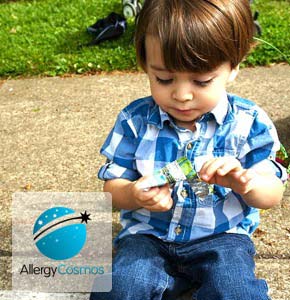It makes sense to clean up the air in your home with a HEPA air purifier, and there are many scientific studies backing up their use. Some of the studies have been larger and around for longer than others. With a quick search, I found ten trials on the impact of HEPA filtration, but the largest one involved only 45 people. Two of the studies involved children, which is helpful because we often get asked about HEPA filtration by parents who want to improve their child's asthma symptoms. We do know, from previous research, that HEPA filtration can reduce levels of airborne particles and of nicotine. A new study shows how HEPA filtration can help children with asthma who are exposed to secondhand smoke. Not only does secondhand smoke make asthma worse, but it is of course also associated with many other health risks.
A group of 225 children took part in the 'Cincinnati Asthma Prevention Study'. All the children in the study had physician-diagnosed asthma and were divided into two groups. The first group got two HEPA filtration units, one of which was installed in the main activity room in the house, the other was installed in the child's bedroom. The other group acted as a control, with two inactive HEPA filtration units being controlled. All of the children were being exposed to secondhand smoke to the level of five cigarettes a day, or more.
So how did the active HEPA filtration do? Very well. Having a real HEPA filter installed lead to a nearly 20% reduction in unscheduled asthma visits to the hospital. There was also a significant reduction in the level of airborne particles of less than 0.3 micrometres diameter in the group with the HEPA filtration, which is what you would expect from a HEPA filter. However, there were no reductions in gaseous pollution levels in the homes (that is, nitrogen oxide levels did not go down). This was, of course, expected because gas pollution requires a different kind of filtration than particle pollution. That is why air filters such as the IQAir HealthPro 250 uses a medical grade HEPA filter in addition to a 5-pound blend of granular activated carbon and impregnated alumina.
The study also showed that a mere particle filter is not enough to significantly reduce asthma symptoms in children. The reason is that for controlling asthma symptoms, it is important to capture particle as well as gas pollution - both of which can be severe asthma triggers. To effectively reduce asthma symptoms in your child, it is also important that you buy the right kind of asthma air purifier. The amount of air flow, system leakage, as well as different filter stages, are key factors to consider.
Ideally, children would not be exposed to secondhand smoke at all. But in the real world, tobacco control is imperfect and more than one-fifth of children are exposed to secondhand smoke at any given time and for most of them, this will exacerbate their asthma. According to this study, there is much that can be done to reduce indoor air pollution - better ventilation, for example, as well as having a HEPA air filter are part of a multi-faceted strategy to do so.
Source: Lamphear BP et al Effects of HEPA air cleaners on unscheduled asthma visits and asthma symptoms for children exposed to secondhand tobacco smoke Pediatrics online December 13 2010.
http://www.cincinnatichildrens.org/research/project/enviro/projects/cinti-asthma/default.htm




